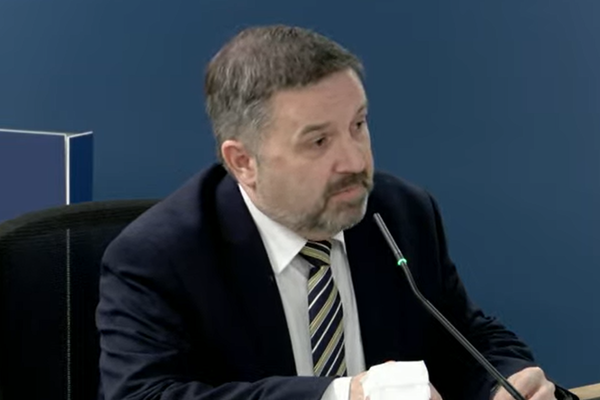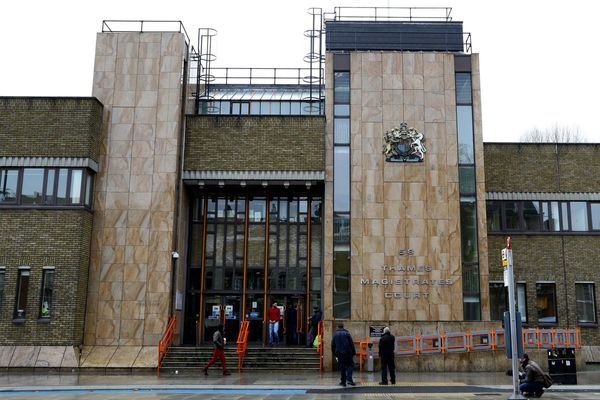
Third time’s the charm for Australia as it races to finish a government transparency action plan that’s several years overdue.
The deadline is December 31, and if Australia fails again, it will lose its status as an active member of a global transparency initiative called Open Government Partnership (OGP).
As a member of the OGP, the federal government is expected to hand in a new national action plan every three years, but the former Coalition government never completed the one covering 2021 to 2023, which was due New Year’s Eve 2021. A top bureaucrat working in Scott Morrison’s office was warned in a letter from OGP chief executive Sanjay Pradhan, sent in February last year, that Australia had “acted contrary to the OGP process” by failing to hand in the plan.
A few months later, Labor won government, but it also failed to hand in an action plan by a new deadline set for the end of 2022. In February of this year, Attorney-General Mark Dreyfus received a letter from Pradhan saying Australia’s tardiness had caused it to be automatically placed under review.
However, unlike the former government, it seems Labor has convinced the OGP it’s actually serious about filing another action plan.
“I understand that these delays were significantly impacted by Australia’s recent change in government, and that the new government has taken significant steps to restart the OGP process, including refreshing membership of your multistakeholder forum and imminently commencing development of a new action plan,” Pradhan wrote.
That letter followed an earlier one from Pradhan to Dreyfus, sent in August 2022, in which he noted: “We understand that significant progress was made in co-creating a third action plan, but that it was not approved by the former government prior to the election.”
New ‘ambitious’ plan in the works
A spokesperson for the Attorney-General’s Department told Crikey an Australian government group called the Open Government Forum — comprising bureaucrats and non-government representatives — was busy working on the new plan.
“[It] will capture an ambitious plan for open government, transparency and accountability,” the spokesperson said.
The update from the government comes as the OGP is hosting a global summit in Estonia, which began on Wednesday and will finish today.
Australia has sent three delegates to the summit: Deanne Allan, a director of OGP Australia working inside the Attorney-General’s Department; and two civil society members of the forum working on the new plan, University of Melbourne honorary professorial fellow Kate Auty and Democracy in Colour founder Tim Lo Surdo.
“The summit events will provide a powerful opportunity to confirm our commitment to open government, and learn from the approaches in other OGP nations,” the government spokesperson said.
Morrison-era effort savaged
Supporters of government transparency may hope the new plan will be more impactful than the last one. An OGP report evaluating the 2018-20 plan, written by an independent evaluator, noted several key commitments had not been fulfilled, even though they had been carried over from the plan Australia had handed in three years prior.
“These commitments, such as the ones on the Extractive Industries Transparency Initiative and on beneficial ownership transparency, were to be continued, with updates given to [Australia’s multistakeholder forum] and the public until completion,” the evaluator noted.
“However, the government did not make progress on these commitments. According to Australian civil society, the government lacked interest in continuing these policy areas.”
Asked by Crikey if the new plan being developed would include those commitments, the government spokesperson was non-committal.
“The forum has identified three themes that will guide the development and selection of [commitments in the new plan]. These are: public participation and engagement, government and corporate sector integrity and strengthening democratic processes,” the spokesperson said.
“The inclusion of any past commitments in the [the new plan] is a matter for the forum to decide.”
Government warned in 2016
The recent letters reprimanding Australia for handing in its plan late were not the first ones of their kind sent to the government.
In 2016, a senior bureaucrat in the Turnbull government received a letter from Pradhan saying: “The government of Australia has now acted contrary to the OGP process for three consecutive action plan cycles (2014, 2015 and 2016).”
That letter came after Turnbull had written to the OGP in November 2015 confirming Australia would “finalise” its membership application.
Two years before that, in May 2013, it was Dreyfus who first wrote to the OGP to express interest in joining. That was only months before Labor lost the election to Tony Abbott’s Coalition.
In his 2013 letter, Dreyfus, who was attorney-general then too, wrote: “We look forward to sharing our wealth of knowledge and experience with other nations participating in the OGP.”
If Australia manages to meet the revised New Year’s Eve deadline, Dreyfus’ ambition stated a decade ago may finally become reality.







